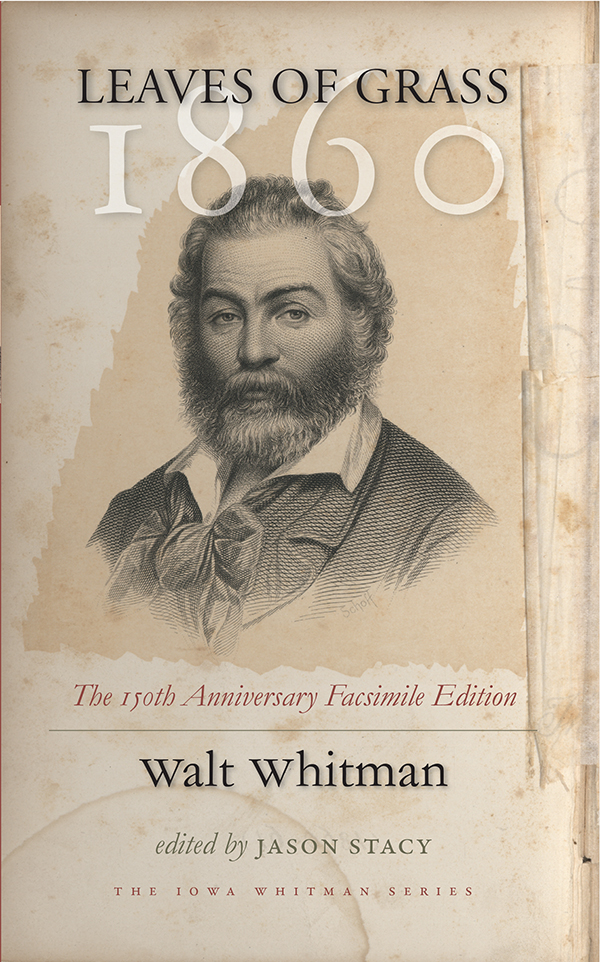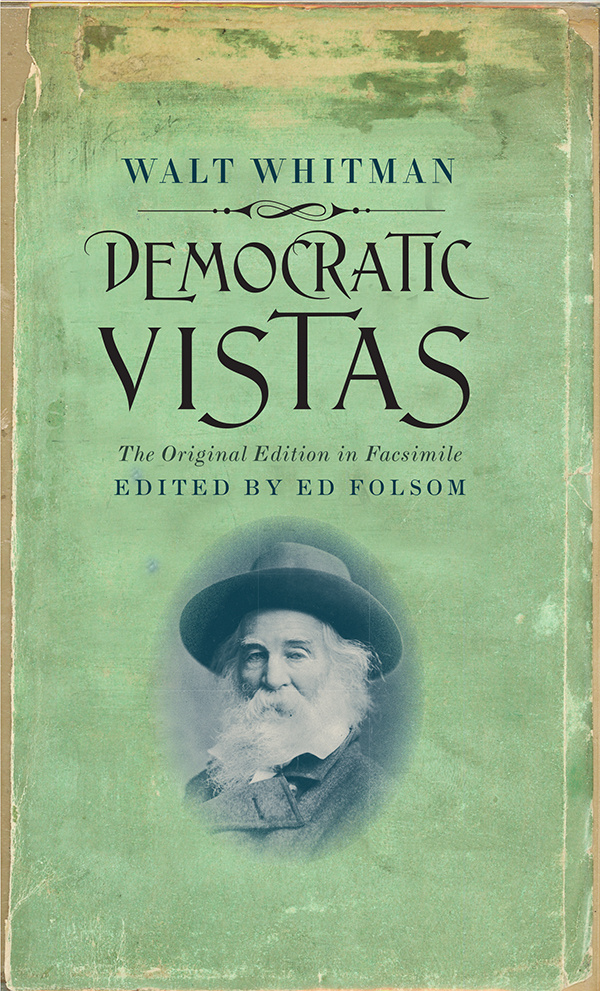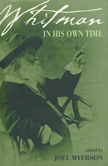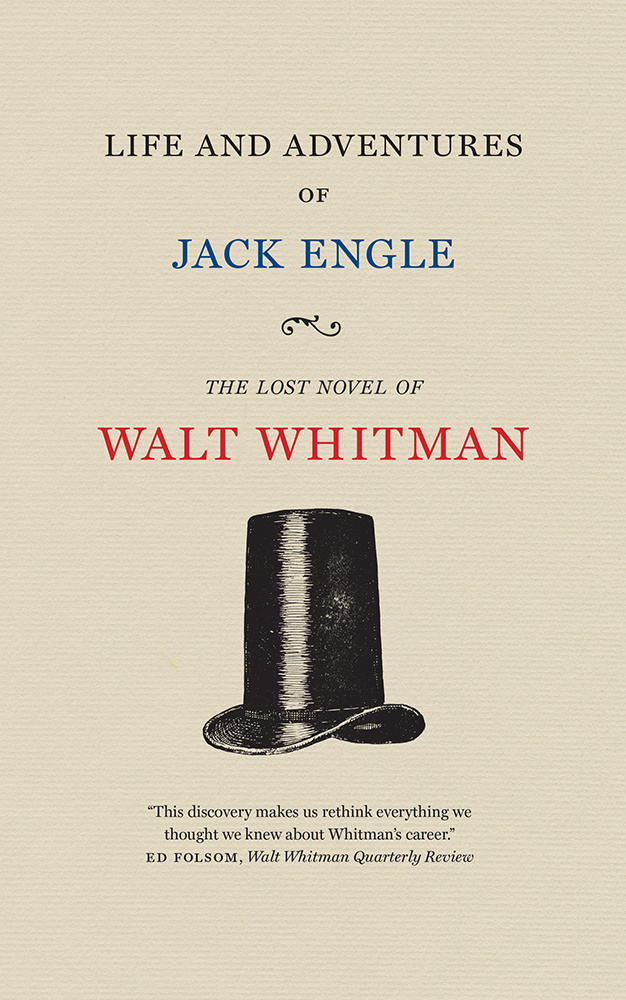In May 1860, Walt Whitman published a third edition of Leaves of Grass. His timing was compelling. Printed during a period of regional, ideological, and political divisions, written by a poet intimately concerned with the idea of a United States as “essentially the greatest poem,” this new edition was Whitman’s last best hope for national salvation. Now available in a facsimile edition, Leaves of Grass, 1860 faithfully reproduces Whitman’s attempt to create a “Great construction of the New Bible” to save the nation on the eve of civil war and, for the first time, frames the book in historical rather than literary terms.
In his third edition, Whitman added 146 new poems to the 32 that comprised the second edition, reorganized the book into a bible of American civic religion that could be cited chapter and verse, and included erotic poetry intended to bind the nation in organic harmony. This 150th anniversary edition includes a facsimile reproduction of the original 1860 volume, a thought-provoking introduction by antebellum historian and Whitman scholar Jason Stacy that situates Whitman in nineteenth-century America, and annotations that provide detailed historical context for Whitman’s poems.
A profoundly rich product of a period when America faced its greatest peril, this third edition finds the poet transforming himself into a prophet of spiritual democracy and the Whitman we celebrate today—boisterous, barbaric, and benevolent. Reprinting it now continues the poet’s goal of proclaiming for “the whole of America for each / individual, without exception . . . uncompromising liberty and equality.”
“Occasionally, a gleam of the true poetic fire shines out of the mass of [Whitman’s] rubbish, and there are tender and beautiful touches in the midst of his most objectionable and disagreeable writings.”—New York Times, May 19, 1860
“It seems ridiculous, but still we are assured of the fact, that by many persons in the United States, the author of ‘Leaves of Grass’ is regarded as not far short in powers of inspiration to Our Savior.”—London Review, October 13, 1860
“Mr. Emerson has much to answer for, and will in reputation dearly pay for the fervid encomium with which he introduced the Author to the American public. There are dirty dogs and dunces who praise WHITMAN’s indecency, and call him a ‘masculine poet’ because he is an obscure ass.”—Cincinnati Daily Commercial, November 29, 1860
“One-sided and all sided—intense and indifferent—lazy and lashed into fury-spouting words and pouring out streams of rubies and diamonds—he is nothing more than the very child of nature, to whom accidentally has been given the name, WALT WHITMAN.”—Boston Banner of Light, June 2, 1860
“Spite of barbarous expressions, vile Americanisms, and all faults of thought and expression, the writings of Walt Whitman are full of character, and well worthy of contemplation. They will in time attain a certain measure of celebrity even, and their author is surely entitled to a distinct niche in American literature.”—Sunday Times, March 3, 1867
“The University of Iowa Press continues its indispensable service to Whitman scholarship with this new edition of the 1860 Leaves of Grass. Jason Stacy refrains from calling the 1860 edition the greatest of all the editions that Whitman published in his lifetime, so we will have to do it for him: those that came before were smaller, while those that came after represent fallings-away from this towering and encompassing enchantment, the greatest book yet from an American poet. Stacy understands the 1860 Leaves as an instance of political history as well as of inspiration, and his unraveling of Walt’s motives as he conceived his New Bible of spirit and nationhood is richly persuasive.”—Robert Roper, author, Now the Drum of War: Walt Whitman and His Brothers in the Civil War
“By 1860 Whitman had written nearly all his great poems. He’d brought order to the sprawling miracle of ‘Song of Myself,’ completed the tender and radical lyrics of ‘Calamus,’ and written the haunted testament to art’s origins that he’d later call ‘Out of the Cradle Endlessly Rocking.’ Thus the 1860 edition of Leaves of Grass is as close as he came to a new American gospel: a visionary text for a dreamed, possible nation. Here, in its wild and fiery form, is the first truly American book of poems—an exuberant ghost that still startles, haunting both our poetry and our struggle toward democracy.”—Mark Doty
Acknowledgments vii
Introduction by Jason Stacy ix
Leaves of Grass, 1860
Annotations 457



